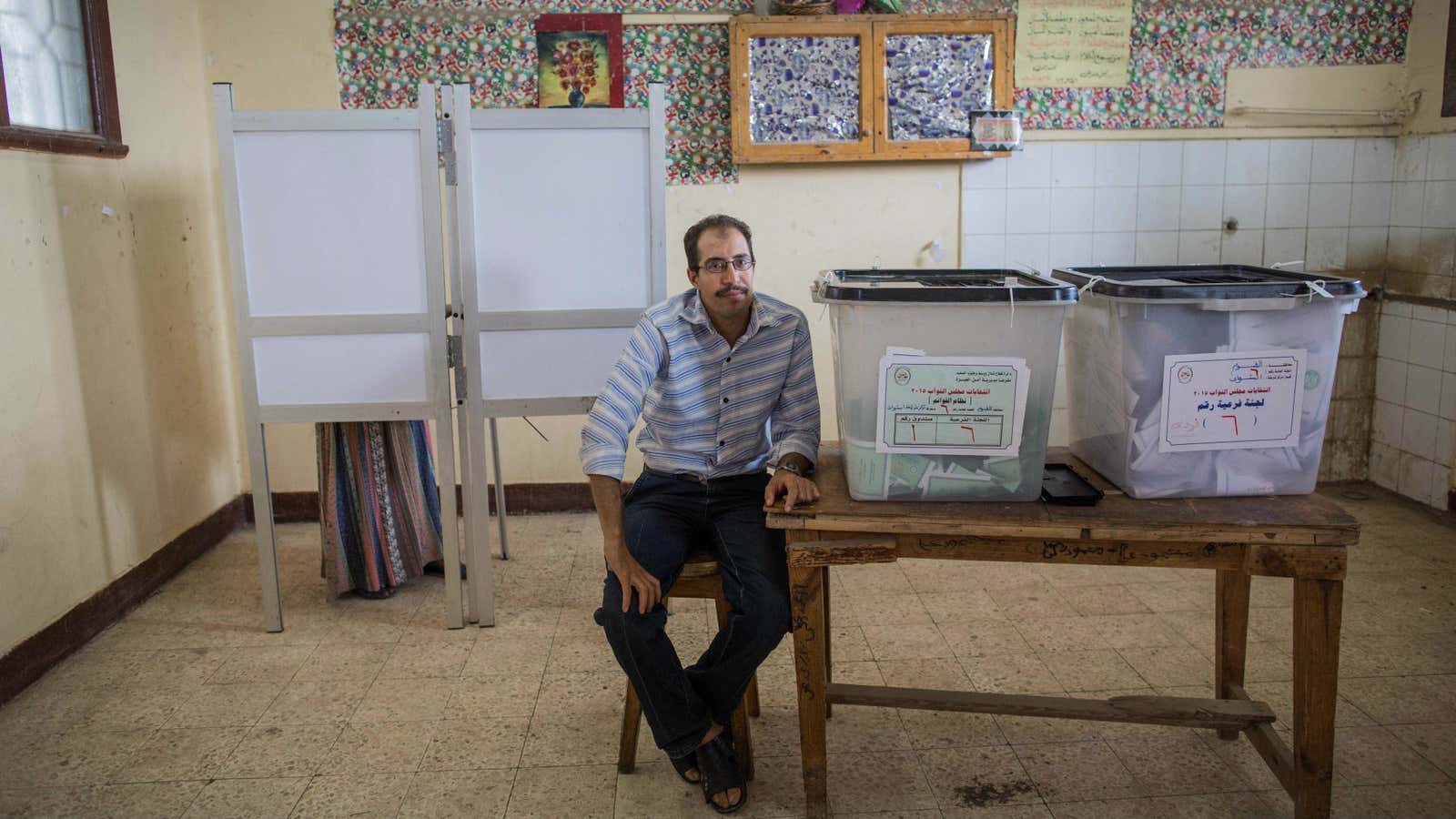Egypt’s turnout at this week’s parliamentary elections was so staggeringly low it prompted a columnist for one of the country’s biggest tabloids to claim that Egyptians prefer porn to politics.
Azza Heikal, an adviser to president Sisi, said on national television in a message directed at young Egyptian men “if a young person doesn’t go down and vote then I blame his family and especially his mother. I squarely blame him too because he doesn’t have the right to protest against the current state of affairs”
Nearly a third of the Egyptian populace were able to cast ballots but in the first round of these elections overall voter turnout was 26.6% of 27 million eligible voters according to the electoral commission. Egypt has not had a parliament since 2012 and the upcoming 596-seat parliament is widely considered to be politically ineffectual as a body holding the executive to account.
“I used to go down and vote in all the major elections right up until the presidential ones last year but with these elections I’ve been a bit busy” said Basem Mahmoud, a 25 year-old sales manager, at a popular café located in the large Giza electorate, where voter turnout was poor compared to other elections. “It is the last thing on my mind”.
“The candidates themselves running are not known to us residents,” he said. “They have banners everywhere but no one knows what they are about”. Mahmoud used to work in downtown Cairo near Tahrir Square, which became the epicentre of the Egyptian revolution when it erupted in 2011. He was more involved in demonstrations when the political climate was freer but since Sisi’s presidency he has felt it is better to focus on his career.
Egypt’s young people were central to the uprising that toppled the thirty-year autocratic rule of strongman Hosni Mubarak in February 2011. They mobilized millions of Egyptians to protests for a more democratic and transparent society with the infamous slogan of ‘bread, freedom and social justice’. However, in the past four years Egypt’s democratic transition has been derailed with regressive policies that marked Mubarak’s reign firmly back in place.
“Youth have been largely marginalized in all aspects of life”, says Nadine Sika, a political science professor at the American University of Cairo who studies youth movements in Egypt.
“There has been too much rhetoric about their inclusion in the economic, social and political spheres, but actually when we look at the real policies, we find that there has been no inclusionary policies at all”, she said. “It is not easy for youth to work in the public sphere”.
Mohamed Kamel, 32, a law graduate who worked in the tourism industry and now works as a security guard blames the government for this lack of political engagement.
“The youth need to be mobilized – it is on the government to help this process, the youth ministry, non-government organisations – they all need to help youth” he told Quartz.
Kamel had however taken time off and voted in his hometown of Al Ayyat, a rural centre about 60 kilometers outside Cairo, which also falls within the Giza electorate. “If I didn’t go out and vote then I would have been mad at myself. Unfortunately, the people I voted for didn’t win” he added. “We need new faces!”
The next round will take place in late November but with an increased climate of security with many youths routinely being rounded up by authorities for their political activity, it is unlikely that any marked change in the youth vote will occur.
For Kamel who had hoped for change in his hometown, he was disappointed at the re-appearance of figures from Mubarak’s dissolved National Democratic Party under new party lists or as independents.
“When I asked my friends to vote they told me we have better things to do like playing dominoes at the cafe. There’s no change. We are just blowing in the wind” he said. “The revolution hasn’t reached us yet”.
